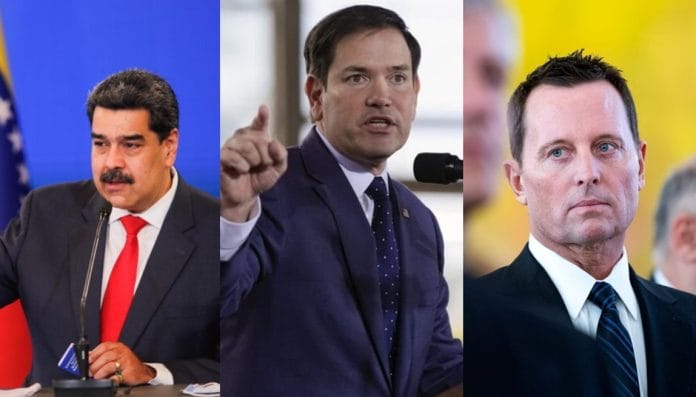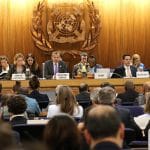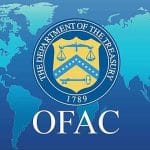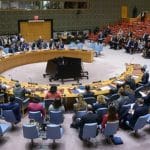The standoff between the U.S. and Venezuela over a number of open issues is slowly reaching the boiling point, while Secretary of State Marco Rubio finds himself steadily losing the support of key Latino communities in his home state of Florida over U.S. President Donald Trump’s immigrant deportation drive, further complicating his ability to move U.S. policy forward.
On that issue, important Miami highways have begun filling with billboards and signs singling out Rubio and a few other Republican senators who have supported Trump’s immigration policies, to the detriment of migrant communities from countries like Venezuela, Cuba, and Nicaragua. According to media reporting from Miami, one such billboard reads; “Little Marco sold out all Venezuelans. He told Trump to end TPS (Temporary Protected Status, which blocks refugee deportations). He’s a traitor to all those fleeing dictatorships.” This billboard was sponsored by a group named “Keep Them Honest,” loosely referencing the nickname Donald Trump used for Rubio when the two tussled in the 2016 Republican presidential primaries.
Much more than oil, it is about power
Bilateral ties with Venezuela have long been based on substantial U.S. oil purchases, which have at times become deeply connected with other issues on the bilateral agenda. The issue of continuing the oil trade nearly derailed the passage of Trump’s “Big and Beautiful” tax and spending bill at the end of May.
Three Republican Cuban American lawmakers finally agreed on May 28 to go along with Trump’s controversial tax and spending package after the President agreed not to extend a Treasury Department license enabling U.S. energy giant Chevron to continue to produce and export Venezuelan oil. This license has long been a political football; Trump had first revoked the license in February, requiring Chevron to wind up its Venezuelan operations by May 27.
That kind of presidential horse trading is not uncommon, especially in the highly transactional Trump White House. In this case, however, various factions in the broader Trump governing coalition ended up working at cross purposes. When Trump was inaugurated, most had agreed the Biden-era Chevron license needed to wind down and Trump moved in that direction.
Enter Richard Grenell, Trump’s envoy for special missions (mostly in name however), who had on a May 27 podcast announced a deal for the release of a U.S. military veteran wrongfully detained in Venezuela, Joe St. Clair. He had been handed over to Grenell by Venezuelan officials on the island of Antigua on May 27 but most of the details of his operation were not cleared through the State Department or Rubio.
Ultimately Trump’s lone ranger, who claims he was in direct touch with the President all along, lost out to the voting power of the three Republican congressmen and Rubio, and his secret understanding with the regime of Venezuelan President Nicolas Maduro on the Chevron license extension did not materialize, other than the one-off prisoner release.
Needless to say, Rubio appears to be the winner on this issue as he has long been a determined opponent of any concessions to Maduro, even if the argument is made that Venezuela’s oil will eventually be sold elsewhere, and by others, if not Chevron.
There is still room for negotiation in the future with Maduro over the issue of treatment of dissenters in Venezuela as well as future repatriations of deported Venezuelan citizens, some of whom have been classified as gang members and terrorists and sent to El Salvador.
Supporting the Venezuelan opposition
In Washington, Rubio met May 23 with five Venezuelan democratic opposition figures who had escaped from the Argentine Ambassador’s residence in Caracas, where they had been sheltering under the protection of the Brazilian government to avoid persecution from the Maduro regime.
The State Department summed up the meeting with these observations: “The Secretary commended these leaders for their bravery in the face of Maduro’s relentless repression and tyranny. He expressed his gratitude to all involved in this operation and recognized the tenacity of Maria Corina Machado who remains in Venezuela. Rubio expressed his concern following the unjustified and arbitrary arrest of opposition leader Juan Pablo Guanipa and over 70 individuals amid a new wave of repression from the Maduro regime. He also reaffirmed the United States’ support for the restoration of democracy in Venezuela and the release of all political prisoners, as well as the safe return of arbitrarily detained Americans and other foreign nationals in Venezuela.”
Americans told to avoid travel to Venezuela
On May 27, 2025, the State Department issued a warning advising American citizens to avoid travel to Venezuela at all costs:
“U.S. Citizens Face Significant Risk of Wrongful Detention in Venezuela
The U.S. government issued an alert today (May 27) warning U.S. citizens against travel to Venezuela. The Department of State assigns Venezuela its highest Travel Advisory level—Level 4: Do Not Travel—due to severe risks including wrongful detention, torture in detention, terrorism, kidnapping, unfair law enforcement practices, violent crime, civil unrest, and inadequate healthcare. U.S. embassies in countries bordering Venezuela, as well as countries with direct air links to Venezuela, have released security alerts highlighting these risks.
U.S. citizens in Venezuela face a significant and growing risk of wrongful detention. More U.S. nationals are currently wrongfully detained in Venezuela than in any other country. Venezuelan security forces have detained U.S. citizens for up to five years without respect to due process, in harsh conditions—including torture—frequently based solely on their U.S. nationality or U.S. passport.
There is no U.S. embassy or consulate operating in Venezuela. Venezuelan authorities do not notify the U.S. government when U.S. citizens are detained or allow U.S. officials to visit them. Detainees are frequently denied access to family members and legal counsel. The United States cannot provide routine or emergency consular assistance to U.S. nationals in Venezuela.
Americans often travel to Venezuela with or to see loved ones or spouses’ families; they face the same risks as other travelers. Family members of U.S. nationals are often detained alongside the American traveler. Visiting Venezuela puts other people at risk.
Dual citizenship, a Venezuelan visa, past travel to Venezuela, or a job in Venezuela does not protect U.S. national travelers. Every American is at risk of being detained by Maduro’s regime.
The U.S. Department of State recommends that any U.S. citizens in Venezuela leave immediately. Anyone with U.S. citizenship or any other U.S. residency status in Venezuela should leave the country immediately, including those traveling on Venezuelan or other foreign passports. Do not travel to Venezuela for any reason. For more information and updates, please visit the U.S. Department of State’s website. Our highest priority is the safety and security of U.S. citizens.”








